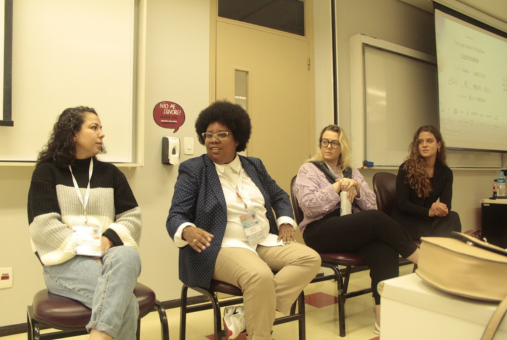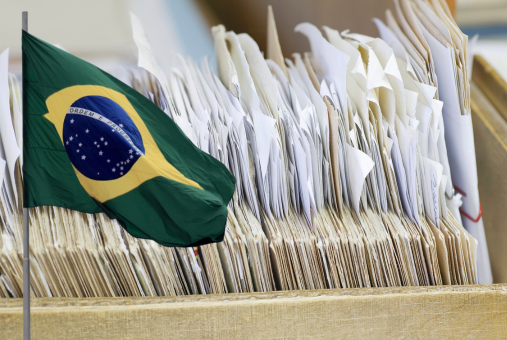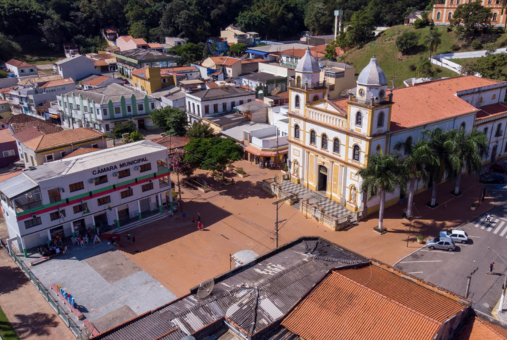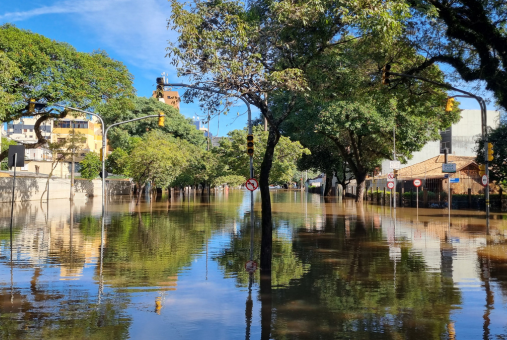
We talked to some of Brazil’s top journalists about the ban on X. Many are relieved, but one reports: “There's a gap in coverage that I don't know how to fill.”

As Brazil gears up for municipal elections, independent media are introducing new initiatives to make political information more accessible and reliable, ranging from monitoring WhatsApp and Telegram to aggregating official data.

People from 21 countries played a game to identify whether information was true or false. Researchers say Colombians and Brazilians had the hardest time telling when it wasn't true.

Women have fought gender stereotypes and secured a place in announcing soccer games on Brazilian television in the past six years. On social media, however, misogynistic and aggressive campaigns against them still persist.

Deepfakes are the tool of the moment for spreading electoral disinformation. Regulation attempts to prevent candidates from using them, but content monitoring is limited. Therefore, collaboration between the public and journalists is essential to identify disinformation that targets candidates in Brazil's municipal elections.

Women's leadership in digital native media has been highlighted by several studies on the sector in Latin America. Managers of journalistic organizations in Brazil have overcome leadership models created by men to find their own styles of team management. They also emphasize the importance of creating and maintaining spaces for exchange with other women leaders in journalism.

Lalo de Almeida of Brazil, Carlos Ernesto Martínez, of Salvadoran investigative site El Faro, John Otis of NPR and the Committee to Protect Journalists in the U.S. and Frances Robles of The New York Times are this year’s recipients of the 2024 Maria Moors Cabot Prize Gold Medals. Special citations go to InSight Crime and Laura Zommer.

At a time when data journalism was in its infancy in Brazil and access to public information was limited, the award-winning series of reports “Os Homem de Bens da Alerj” (The Good Men of Alerj) stood out for revealing the enrichment of politicians elected to the Legislative Assembly of Rio de Janeiro. Twenty years later, the impact of that pioneering investigation still resonates in Brazilian journalism, whether through the use of advanced data analysis tools or the application of the Access to Information Law.

Five philanthropic foundations have already committed to donating US$2 million for the first two years of operation of a new fund to support public interest journalism in Brazil. LJR spoke to the consultants responsible for the fund, which aims to provide “more and better funding” to Brazilian journalistic initiatives.

Almost half of Brazilian municipalities do not have local journalistic media, leaving 26.7 million people without news about their cities. A special report by Agência Mural shows how in Pirapora do Bom Jesus, a lack of news coverage mainly affects the periphery, making access to information difficult and increasing socioeconomic inequality.

In the book “O pulpito” (The pulpit), Folha de S.Paulo journalist Anna Virginia Balloussier discusses topics such as entrepreneurship, politics, tithing, abortion and sex among evangelicals, seeking, as she says in the introduction, to avoid “falling into the trap of reducing individuals to stereotypes.” In an interview, she describes how she seeks to understand a highly heterogeneous phenomenon and responds to criticism of her work.

Rio Grande do Sul, a state in southern Brazil, is facing its biggest climate disaster, with floods that displaced more than 580,000 people and left 172 dead. Local journalists, many also affected, are dedicated to this unprecedented story. LJR consulted journalists from digital media outlets Matinal, Sul21 and Nonada, who spoke about their experiences and the sense of community among journalists that grew stronger amid chaos in the state.